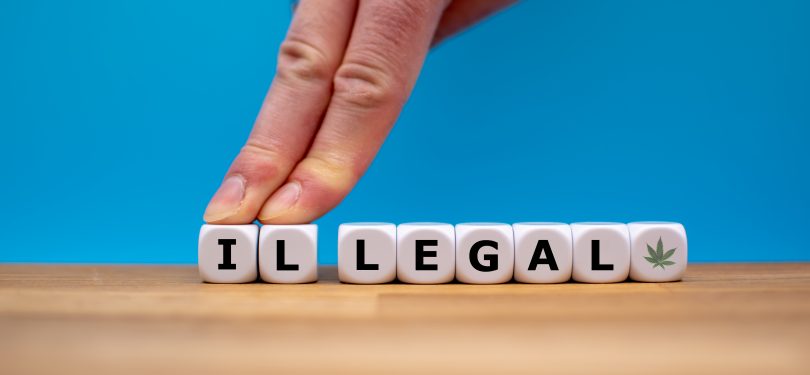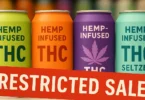In a strong showing of ‘be careful of the headline that you read’, a recent story has broken out that the DOJ confirmed the legality of delta-8 THC. This is fancy marketing writing, when in fact, the DOJ just clarified that synthetic delta-8 THC is most certainly illegal.
Though a letter from the DEA has confirmed that synthetic delta-8 THC is illegal, this doesn’t do much to stop the burgeoning products market, which offers tons of delta-8 THC options. Delta-8 certainly fits into a ‘no-one-will-do-anything-about-it’ loophole, which means regardless of the DEA, this market should stay intact.
We believe in getting people what they want, and have a variety of delta-8 THC deals, along with tons of other cannabis compounds, for you to check out and buy. Check out our selection of products in The Delta 8 Weekly Newsletter. And save big on Delta 8, Delta 9 THC, Delta-10, THCO, THCV, THCP & HHC products by checking out our “Best-of” lists!
What happened?
What happened is that a slew of headlines hit the internet in the last couple months, with a claim that the Department of Justice, through the DEA, made a clarification that hemp-derived delta-8 THC is legal. This in response to a question on its legality. While it does appear that a letter was written, and while it does back up this claim, it most certainly does nothing to back up the idea that the delta-8 THC we use, is legal. And in fact, quite clearly states the opposite, that synthetic delta-8 THC is illegal. Of course, understanding the letter, means actually understanding the situation.
The letter was a response from The Department of Justice, via the DEA, to Donna C. Yeatman, R.Ph., who is the executive secretary of the Alabama Board of Pharmacy. The original letter by Yeatman was dated August 19th, 2021, with the response to it dated September 15th, 2021. Though I cannot see the original letter sent to the DEA by Yeatman, the response states that it was made in reference to a question on the “control status of delta-8-tetrahydrocannabinol (D8-THC) under the Controlled Substances Act (CSA).”
The response letter starts by identifying what delta-8 is: “D8-THC is a tetrahydrocannabinol substance contained in the plant Cannabis sativa L. and also can be produced synthetically from non-cannabis materials.” After explaining a bit about THCs, and how they’re Schedule I, it goes on to make this statement: “Thus, D8-THC synthetically produced from non-cannabis materials is controlled under the CSA as a “tetrahydrocannabinol.””
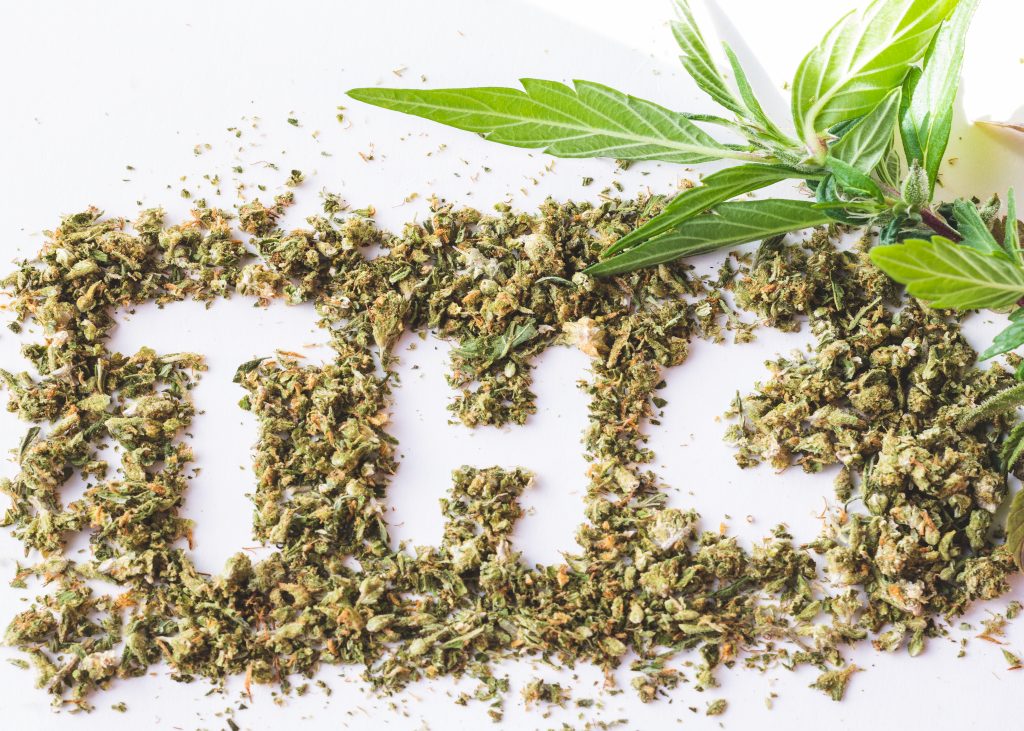
What the headlines are referring to, is the already understood statement that comes next: “The CSA, however, excludes from control “tetrahydrocannabinols in hemp (as defined under section 1639o of Title 7).” Hemp, in turn, is defined as “the plant Cannabis sativa L. and any part of that plant, including the seeds thereof and all derivatives, extracts, cannabinoids, isomers, acids, salts, and salts of isomers, whether growing or not, with a delta-9 tetrahydrocannabinol [(D 9 -THC)] concentration of not more than 0.3 percent on a dry weight basis.” 7 U.S.C. 1639o(1).”
And then it makes this, already understood statement: “Accordingly, cannabinoids extracted from the cannabis plant that have a D 9 -THC concentration of not more than 0.3 percent on a dry weight basis meet the definition of “hemp” and thus are not controlled under the CSA. Conversely, naturally derived cannabinoids having a D 9 -THC concentration more than 0.3 percent on a dry weight basis is controlled in schedule I under the CSA as tetrahydrocannabinols.1”.
What does this mean about synthetic delta-8 THC being illegal?
Truth is, we’ve seen these statements plenty of times already. They’re the basic definitions and statements that came out with the Farm Bill in 2018, and the follow-up commentary by the DEA and the FDA in their interim and final rules. Nothing new is being stated here. In fact, the DEA did what it does best, reiterated already explained information, without making any new statements. Which makes it even funnier to me that this is being written about the way it is.
Get it while you still can…
You see, we already know that hemp-derived compounds are legal so long as they are naturally occurring, and not in violation of the stipulation requiring no more than .3% delta-9 THC on a dry weight basis. We know that because it’s literally a part of the definition of hemp. But we know a few more things, regardless of how much they might be uncomfortable to the industry. Here are a few things that we already know:
- Delta-8 is a minimally occurring natural and oxidized version of delta-9 THC, which can’t be extracted in high enough amounts naturally (and certainly not from hemp which has a low delta-9 concentration) for product production.
- This means, in order to produce products for use, delta-8 THC must be synthetically made, rather than being extracted from the delta-9 that comes from hemp plants.
- The processes for producing naturally occurring delta-8 THC and synthetic delta-8 THC are very different, and are regulated differently. Naturally occurring is legal, and synthetically made is illegal. Even if the same compound is produced.
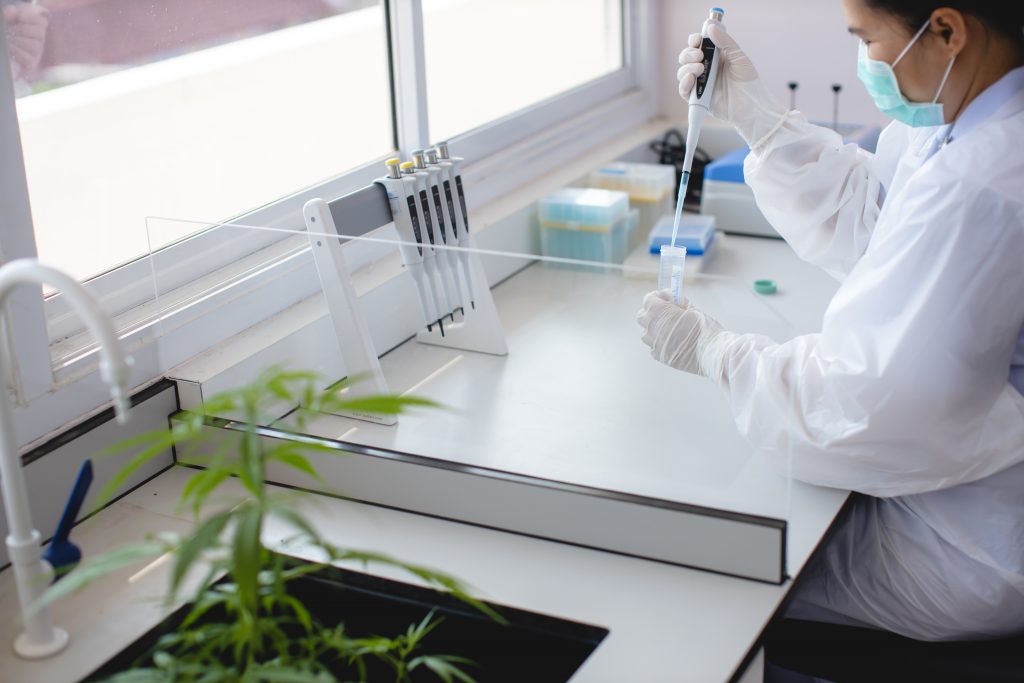
- Since we only use synthetic delta-8 THC in products, the delta-8 THC being advertised and sold is definitionally, not legal. It can’t be because it’s not coming directly from the plant.
- IF delta-8 could be appropriately sourced directly from the hemp plant without synthesis, it WOULD be legal. If all products were made in this way, we wouldn’t be having this conversation at all.
Why did this story come out?
The 2018 US Farm Bill legalized the production of industrial hemp, and hemp-derived compounds. It also set in motion a huge debate over compounds like delta-8 THC, which can technically be derived from a hemp plant, making many in the industry erroneously believe that simply being able to be derived from a plant, is comparable to a synthetically made version of the same compound.
These two things are, in fact, regulated completely differently, with natural hemp-derived compounds being legal, and synthetics falling under the Federal Analogue Act of 1986, which states that an analogue of a Schedule I substance (that would be tetrahydrocannabinols), is also a controlled substance. As in, once its synthetic, definitions of hemp no longer apply.
There has been much talk about a legal loophole that doesn’t actually exist, as a way to spur on what is actually an illegal market. Far as I can tell, this article factors into this debate, as a weak attempt to try to sway popular opinion, by making a slight misstatement that focuses on the general misunderstanding of plant-derived vs synthetic.
What’s the takeaway?
Perhaps there are two takeaways here: the first is that, if the DEA and Department of Justice have not seen fit to make any further official statement, that they’re not likely to be saying anything new to someone asking for a clarification. And that’s exactly the case here. Nothing new was said. Nothing changed. In order for this statement to carry any weight, it would have had to explain something further to the definitions we already know.
The second takeaway is that headlines can be incredibly misleading, particularly when there is an opinion battle going on. I’m all for the legalization of weed and its compounds. But I don’t like when information is skewed for the purposes of creating confusion, and especially when that confusion is being created as part of a marketing war. These headlines are meant to make buyers think that what they’re doing is safe and permitted, and technically, its not.
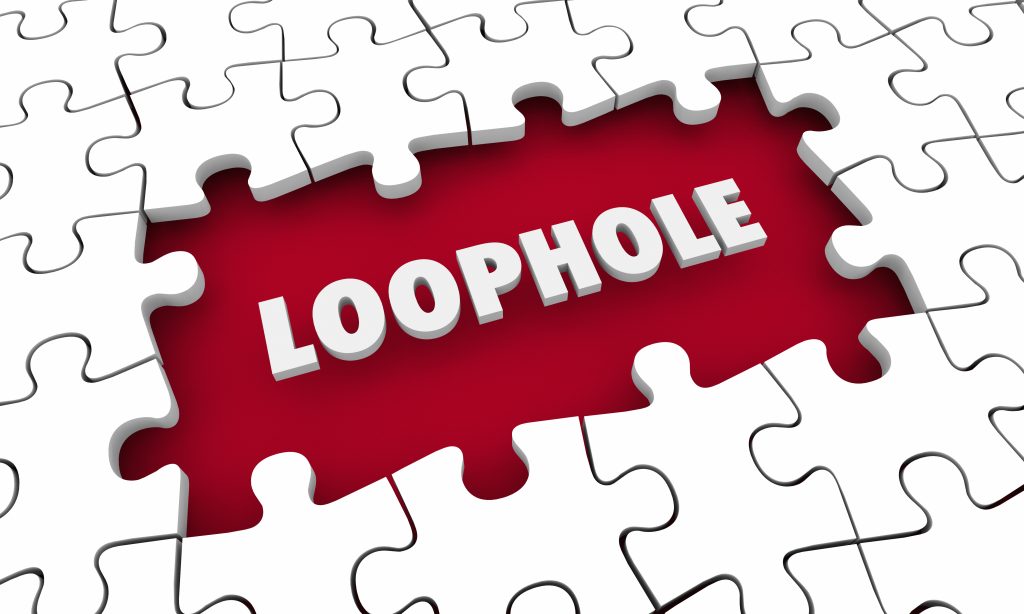
The more confounding aspect to this, is that legal loophole or not, synthetic delta-8 THC (the only kind we actually use) most certainly falls into a loophole despite being illegal. It’s just a different kind of loophole. It’s a ‘no-one-will-do-anything-about-it’ loophole. It’s a loophole that exists on the basis that regardless of legal status, nothing is likely to be done. The federal government has wasted so much money fighting a plant that its about to legalize, that going after it again is a horrible press nightmare.
Besides this, the internet world is massive, and impossible to regulate, which means the federal government would be banging its head against the wall, just to have a horrible press nightmare. It really doesn’t matter how the US government defines the legality of delta-8 THC, its not looking to actively stop its production and sale on a large basis. Because it realistically can’t. And that understanding makes this headline war, that much more insane.
Synthetic Delta-8 THC – Conclusion
If there’s still some kind of confusion over this, here’s a simplified version to help with clarity. If delta-8 THC comes directly from the plant, its legal! If its synthetic delta-8 THC which has to be made using non-plant materials, it’s illegal! Now consider that we only used synthesized delta-8 in products. Is it clear now? Great!
And of course, remember that the absence of a legal loophole, does nothing to stifle the power of the ‘no-one-will-do-anything-about-it’ loophole, which delta-8 THC squarely falls into.
Hello to all! Thanks for stopping by CBDtesters.co, the #1 cannabis and psychedelics news publication, for all the best and most relevant stories of the day. Swing by the site regularly to stay in-the-know on the constantly-changing universe of legal drugs and industrial hemp, and remember to sign up for The Delta 8 Weekly Newsletter, to make sure you get every news story first.
Disclaimer: Hi, I’m a researcher and writer. I’m not a doctor, lawyer, or businessperson. All information in my articles is sourced and referenced, and all opinions stated are mine. I am not giving anyone advise, and though I am more than happy to discuss topics, should someone have a further question or concern, they should seek guidance from a relevant professional.

